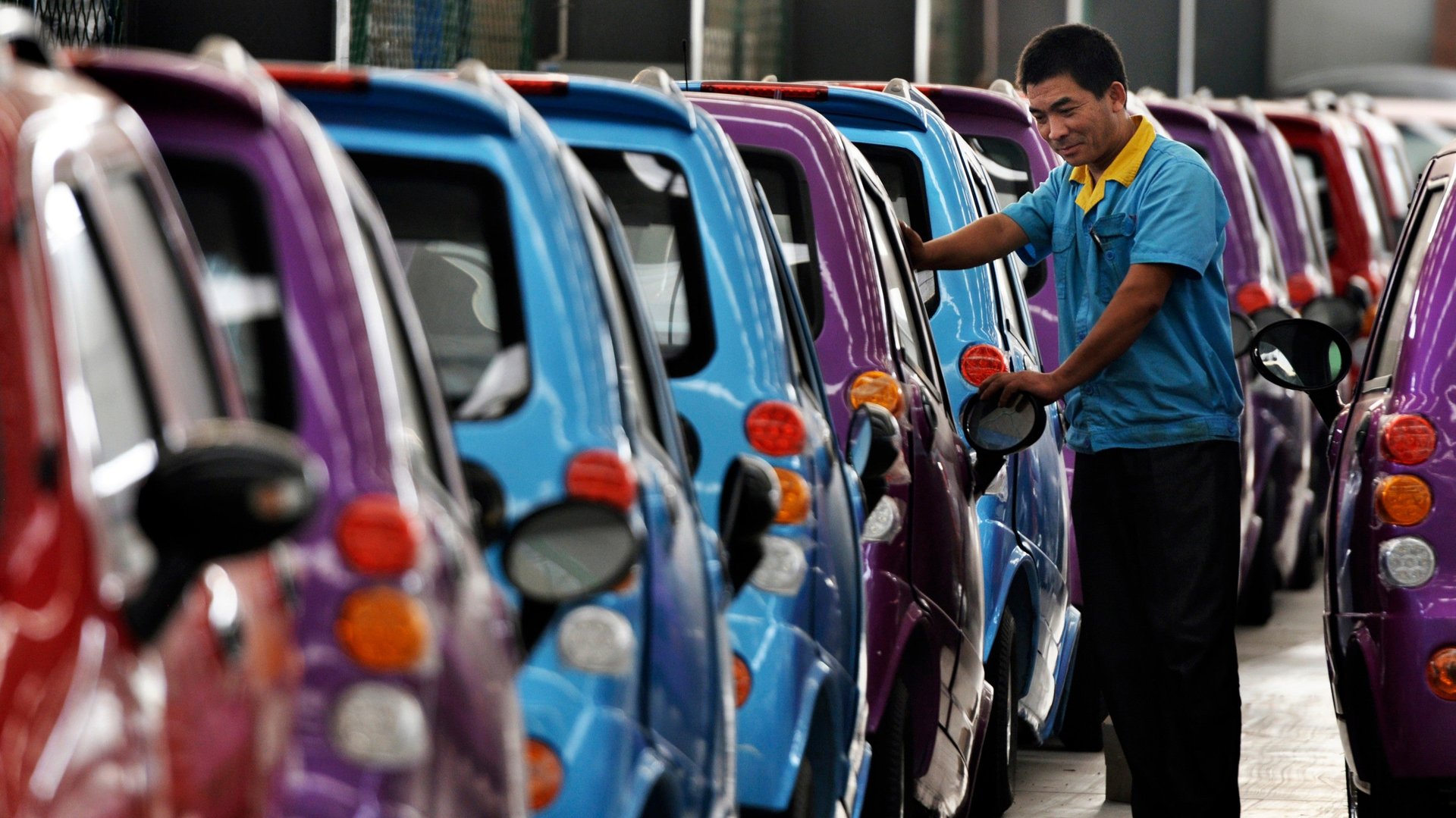How to keep track of China’s electric carmakers
China’s electric automakers reached a new height in 2018—selling more than one million cars. Boosted by heavy government subsidies, the country is hoping to sell twice as many in 2019.


China’s electric automakers reached a new height in 2018—selling more than one million cars. Boosted by heavy government subsidies, the country is hoping to sell twice as many in 2019.
That kind of growth has attracted a slew of startups, which have collected handsome sums of investment. Some of these startups have racked up billion-dollar valuations, even before they have sold a single new-energy vehicle (NEV), which is the Chinese government term for all-electric and plug-in hybrids. Weirder still, many of them don’t even have their own production lines. Instead, they turn to established companies to make electric cars for them, creating a complicated web of industry relationships.
That makes it near impossible to answer a simple question: how many electric carmakers are there in China? The answers available are only rough estimates, even from the smartest industry analysts.
“It’s very hard to get comprehensive data on new car brands. There might be more than 100 startups making NEV passenger cars in China and another 100 or so traditional manufacturers,” said Qiu Kaijun, who runs a website (link in Chinese) reporting on the NEV industry.
Quartz conducted its own investigation to find a more precise number. Here’s what we found: In 2018, there are around 400 active electric-vehicle makers, including close to 90 NEV passenger car makers in China.
To get this answer, we used monthly data published by the Ministry of Industry and Information Technology last year, which lists vehicles (including passenger cars, buses, coaches etc.) approved for sale. We were also able to identify active carmakers and car brands, with the help of Cui Dongshu, the secretary of China Passenger Car Association, an organization that gathered sales information from carmakers and retailers.
We’ve published the full list below. It’s worth noting that the list will change as old models are retired and new ones are approved. For example, the monthly data captured Xiaopeng, a four-year-old startup which in December delivered 24 cars. But it could not include Byton, a billion-dollar startup which displayed an electric SUV at the Consumer Electronics Show in Las Vegas this year and which is still in the process of building a factory (link in Chinese). There are also some oddities like the company Nanjing Golden Dragon Bus, which, despite the name, the ministry says also makes passenger cars.
If you’re interested in keeping up with the changes, you can follow these steps:
- There are two ways to get MIIT’s data: either directly from the ministry’s website (search for keywords:道路机动车辆生产企业及产品公告, which means “product release of vehicles and their manufacturers”) or try d1ev.com, an auto blog that puts the MIIT’s monthly announcements in one place.
- Then further filter the date with these keywords: 纯电动轿车 (pure battery four-seaters),纯电多用途乘用车 (pure battery passenger cars),插电式混合动力多用途乘用车 (PHEV passenger cars),插电式混合动力轿车 (PHEV four-seaters). Passenger cars can include SUVs and coupes.
There are 84 passenger car manufacturers in China who made new products in 2018.
Some of the 84 carmakers are making 81 brands of battery electric vehicles (BEVs) in 2018. One manufacturer can make different models of different brands.
And some of the 84 carmakers are manufacturing 25 plug-in hybrid passenger car brands.